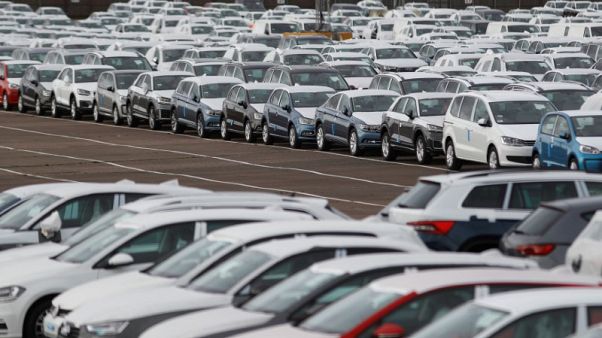
British car production fell 4.1 percent in September from the same month a year earlier, a fifth decline in six months that adds to signs of faltering consumer and business confidence.
Exports, accounting for 80 percent of total output, fell 1.1 percent, while domestic demand slumped 14.2 percent, according to figures from the Society of Motor Manufacturers and Traders (SMMT), pushing total production down to 153,224 cars.Consumer confidence remains lower than before Prime Minister Theresa May lost her parliamentary majority during a June snap election and has fallen since Britain voted to leave the EU last year, although it has inched up in recent months.
British new car sales are expected to fall this year by around 4 percent from 2016’s record 2.69 million vehicles, also hit by uncertainty over whether the government will introduce a diesel scrappage scheme or new taxes on the most polluting cars.
“It’s clear that declining consumer and business confidence is affecting domestic demand and hence production volumes,” SMMT Chief Executive Mike Hawes said.
“Uncertainty regarding the national air quality plans also didn’t help the domestic market for diesel cars,” he said.
Production declined year on year in April, May, June and August and the SMMT has said its target of beating this decade the all-time high of 1.92 million vehicles produced in 1972 was in doubt.
Britain’s overwhelmingly foreign-owned car sector, dominated by Indian-owned Jaguar Land Rover and Japan’s Nissan, is worried Brexit will add tariffs and customs checks to its exports, risking the viability of plants.
Toyota, which built one in ten of Britain’s 1.7 million cars last year, said it needed clarity on the terms of Britain’s post-Brexit access to EU markets to secure production at its central English plant.
Peugeot-maker PSA said earlier this month it would cut just under a quarter of the workforce at its Ellesmere Port car plant in Britain and warned the site needed to improve its performance to protect its future.
Ministers have promised to protect the sector and secure trade that is as frictionless as possible with the EU. Brexit supporters say European nations would not want their cars to face tariffs entering the continent’s second-biggest market.
But the SMMT on Thursday called on the government to spell out Britain’s future arrangements with the EU as soon as possible.
“Brexit is the greatest challenge of our times and yet we still don’t have any clarity on what our future relationship with our biggest trading partner will look like, nor detail of the transitional deal being sought,” said Hawes.
Source:-news18.c




